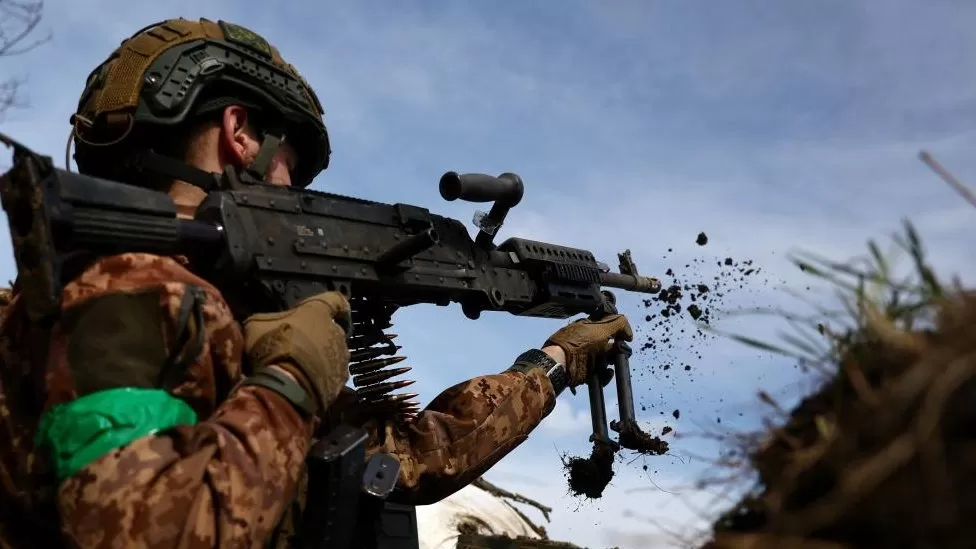In a significant move to support Ukraine in its ongoing conflict with Russia, the United States has sent approximately 1.1 million bullets, which were seized from Iran last year, to Kyiv, according to the US military.
The US Central Command (Centcom), responsible for operations in the Middle East, revealed that the ammunition was confiscated from a ship bound for Yemen in December. Ukraine’s Western allies have recently expressed concerns about their struggle to keep up with the rate at which Ukraine is consuming ammunition.
Centcom stated that the Iranian rounds, which were transferred to Ukraine on Monday, are 7.62mm caliber and are used in Soviet-era rifles and light machine guns. While the number of bullets is significant, it represents only a small percentage of the hundreds of millions of rounds already provided to Ukraine by its allies. The US alone has supplied over 200 million bullets and grenades.
The Iranian munitions were initially seized by US naval forces from a stateless ship named MARWAN 1 on December 9. In July, the US government gained ownership of the ammunition through a process called civil forfeiture, which allows assets to be seized if their owners are suspected of involvement in criminal activities. In this case, the claim was made against Iran’s Islamic Revolutionary Guard Corps, a branch of the Iranian armed forces responsible for safeguarding the country’s government.
Centcom emphasized that the US is committed to working with its allies and partners to counter the flow of Iranian lethal aid in the region through lawful means.
Iran has been supporting the Houthi rebels in Yemen’s ongoing civil war, but arms transfers to the group are prohibited under a 2015 resolution by the UN Security Council. The civil war in Yemen began in 2014 when the Houthis seized control of the capital, Sanaa, and ousted the country’s government. The internationally recognized authority in Yemen, backed by a Saudi-led coalition and supported by the US and the UK, continues to oppose the Houthi rebels.
In addition to the transfer of ammunition, concerns have been raised among Ukraine’s Western allies about their ability to arm Kyiv. Adm Rob Bauer, the chairman of NATO’s military committee, warned at the Warsaw Security Forum on Monday that the “bottom of the barrel is now visible.” He highlighted decades of underinvestment, stating that even at the start of the war, NATO countries’ ammunition stocks were only half-full or even emptier. Bauer called for increased production by governments and arms manufacturers to address the shortage.
UK Defense Minister James Heappey also urged NATO allies to allocate 2% of their national income to defense spending, a target agreed upon by the entire bloc but expected to be met by only 11 out of 31 members this year.
The transfer of Iranian ammunition to Ukraine comes at a time when the Biden administration is exploring alternative ways to provide assistance to Ukraine due to opposition from some members of Congress. Officials have been warning for weeks that the allocated funds for Ukraine are nearly exhausted, but pressure from certain Republican members has prevented the House of Representatives from approving additional funds.
On Tuesday, some of these members succeeded in a vote to remove House Speaker Kevin McCarthy from his position, which will delay any vote on further aid until a replacement is installed, expected to happen no earlier than the middle of next week. Even then, any future Speaker who brings the issue to the floor for a vote is likely to face similar opposition.
